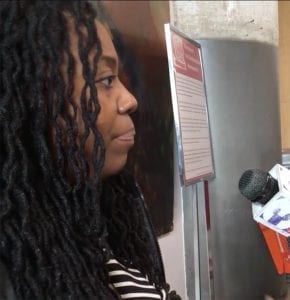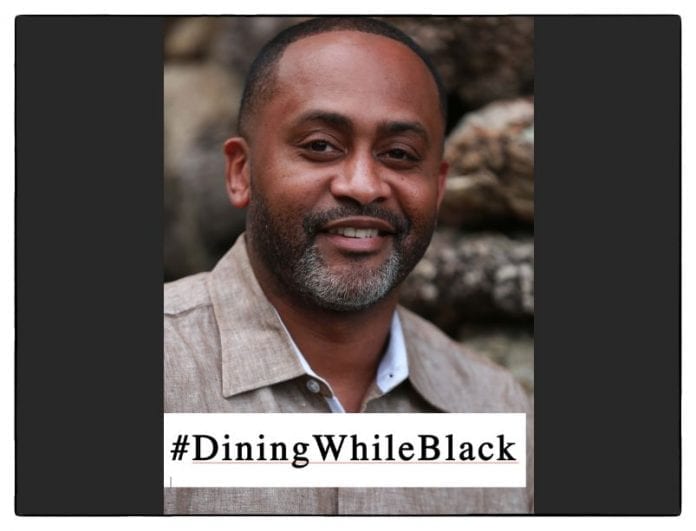by Dr. Earle J. Fisher —
On April 29, 2018, Jennifer Schulte called the police because she saw two African-American men using a public park charcoal grill in Oakland, Calif. Schulte, now referred to as “BBQ Becky,” saw black people in public – enjoying themselves – and projected suspicion upon them.
The police responded to “Becky’s” white fragility and fabricated concern. The black men were not doing anything illegal. Thankfully, no shots were fired; nobody died.
In June of 2018 in San Francisco, Alison Ettel earned the Internet name “Permit Patty” for calling the police (and subsequently lying about calling) when she saw an eight-year-old black girl selling bottled water in front of her house. The young girl was raising money for a trip to Disneyland; so much for the embrace of black entrepreneurship. Officers answered the call, no shots were fired; no casualties.
On Oct. 14, 2018, a white woman dubbed “Golfcart Gail” by social media called the police because she observed a black father shouting instructions to his son during a soccer game in Florida. It’s not illegal to be a living counterweight to the cultural myth about black fatherhood. Luckily, he still lives to tell the story.

Then last Saturday (February 2) in Memphis, organizer/activist Shahidah Jones was out with friends at Napa Café – #DiningWhileBlack. The party purchased nearly $2,000 (including a $500 advance deposit) in total services. A dispute in billing escalated to the point of owner Glenda Hastings, a white female, summoning police to intervene. According to Napa Café, Jones and her party had become “hostile, profane and argumentative.”
Jones, a prominent leader in the social justice movement in Memphis with The Official Black Lives Matter Memphis Chapter, was arrested for “trespassing.” The charges were dropped on Monday (Feb. 4).
There are numerous was to engage this litany of happenings. The most provocative angle for me is how law enforcement officers are beckoned and respond to coddle damsels who manufacture distress. Too often, black people engaged in normal occurrences (including disputes of billing at restaurants), are met with hostility and feigned despair from people who are not in danger of anything. Yet, black folks are the ones labeled “hostile,” “profane” and “argumentative.”
Police get called for the slightest hint of black impropriety. And each of these calls can potentially set off a series of events ending in black death, white tears and some police officer’s acquittal.
This must stop.
In a culture and context wrought with over-policing, especially in the name of a “public safety” mythology that equates increased police presence with the lowering of crime, we must not overlook the way “public servants” are deployed to offer protection and service to some but punishment and surveillance to others.
We have seen an increase in the number of police officers in Memphis in the past few years and a decrease in 911 call response time. Simultaneously we’ve seen an overreach of law enforcement authority disproportionately leveled against black and brown people.
Nikhil Pal Singh’s 2016 essay, “The Whiteness of Police” contends, “Enhancement of institutional capacities for policing” is related to “an increasingly paranoid sense of the potential loss of white monopolies on space, power, and moral right.” To that end, white fragility uses police to cover for poor customer service and petty cultural ignorance.
The bottom line is this: black people deserve to be served by businesses and protected by officers in the exact ways those officers serve and protect non-black (white) people.
Period.
Police officers are not personal body guards or security guards for private business owners or businesses. They are public servants. We need law enforcement to clarify their oath of protection for citizens in both public and private spaces.
This is part of why we’ve advocated so strongly for cultural sensitivity training led by local activist and organizers since the bridge demonstration in Memphis in 2016. Those of us on the front lines have directly encountered the white-privilege psychology imbedded within our legal and law enforcement infrastructure more times than we care to count. Even black police show up with an implicit bias against black bodies in public spaces.
We know that cultural sensitivity training won’t solve the problem of discriminatory policing overnight. But it can set forth a ripple effect of more cautionary dealings with people of color. It might just cause police officers (and business owners) to be more intentional about de-escalation tactics. It might just save more black lives.
(The Rev. Earle J. Fisher, Ph.D., is senior pastor of Abyssinian Baptist Church and lead organizer of #UPTheVote901.)



